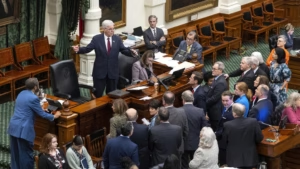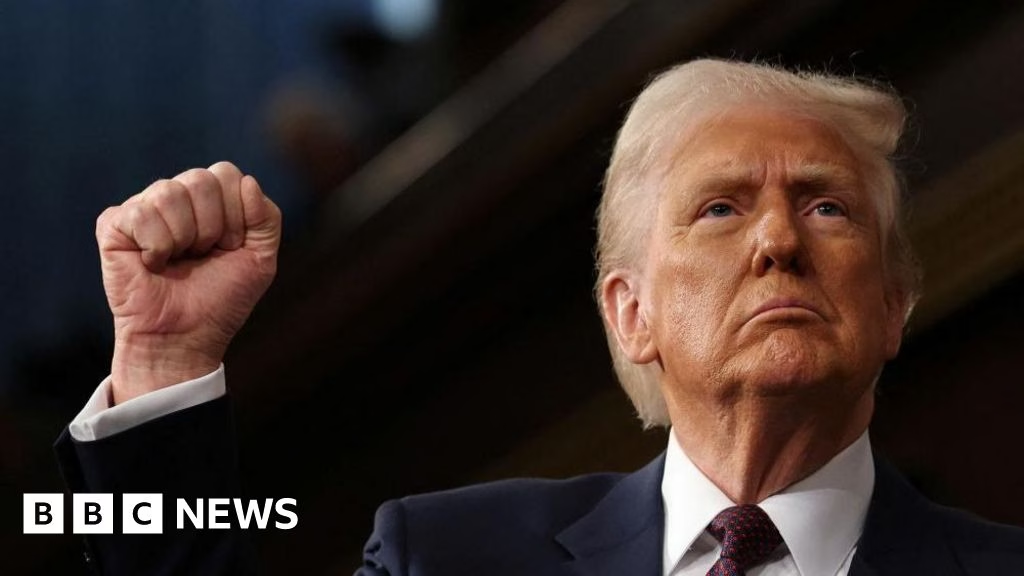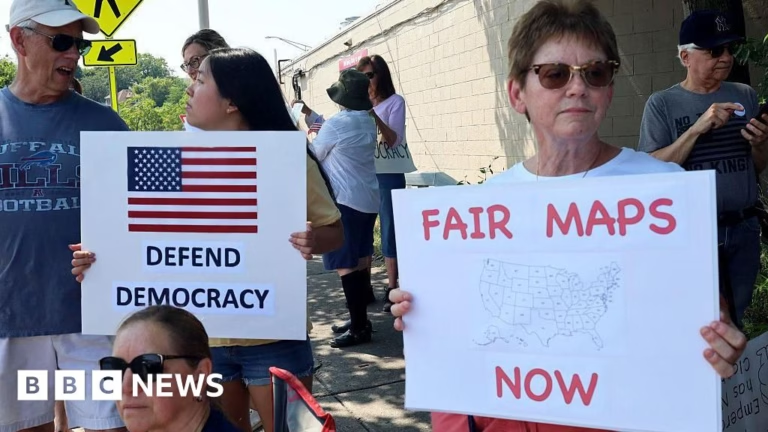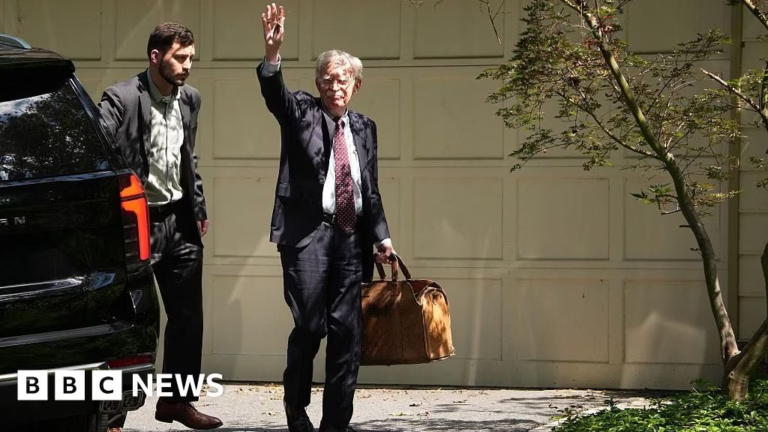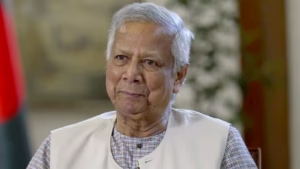Six weeks after becoming president, Donald Trump visited the US Capitol, which was under Republican control, to celebrate his accomplishments. He claimed that his administration had achieved more in 43 days than most presidents do in four or eight years, and emphasized that they were just getting started.
Trump stated that “many” believed his presidency was the most successful in US history. He noted a change in the national mood towards “pride” and “confidence,” comparing himself to George Washington and boasting about the size of his electoral victory.
The whirlwind start to his presidency provided Trump with plenty of material to cover, and he didn’t hesitate to do so. He went through a long list of tangible achievements, such as hundreds of executive orders and actions, a freeze on foreign aid, lower levels of unauthorized border crossings, and the withdrawal from international organizations and agreements.
Trump also spoke extensively about his ban on transgender athletes in women’s sports and his efforts to remove “woke ideology” from US schools and the military. He asserted that “wokeness” was troubling and bad, and that it was being eliminated.
Democrats, who made up half of the audience in the House chamber, sat in silence as the president repeatedly blamed them, former President Joe Biden, and “radical left lunatics” for the nation’s problems. Several dozen Democrats responded by holding up black signs with words like “false” and “lies.”
Trump appeared to enjoy using the presidential bully pulpit to confront his political opponents. He mocked their refusal to cheer his remarks, resurrected his “Pocahontas” nickname for Senator Elizabeth Warren, and mentioned that previous attempts to prosecute him had failed.
Later in Trump’s speech, he shifted his focus to the tasks he still needed to accomplish. The speech, which lasted for over an hour and 40 minutes, included standard presidential address topics. Trump’s rhetorical flourishes became repetitive, but he spoke passionately about small business optimism, blamed Biden for the state of the economy, including high egg prices, and promised to reduce inflation through a Department of Government Efficiency.
Trump defended his tariff policies and immigration enforcement efforts. Despite potential disturbance and indigestion for US farmers, he promised to implement reciprocal tariffs on all US trade partners next month. He also reiterated his promise to balance the budget without providing details on how he would achieve this.
Trump shifted the discussion to tax cuts that he wished for Congress to enact. These cuts would add hundreds of billions of dollars to the already substantial budget deficit. Foreign policy was briefly mentioned, including his desire for American annexation of Greenland and American control of the Panama Canal. He spoke more about negotiating with Russia for peace in Ukraine and read from a letter he received from the Ukrainian leader, Volodymyr Zelensky.
By the time Trump concluded his speech, it had become the longest presidential address to Congress. While it offered plenty for his supporters to appreciate, it also provided enough material for his critics to jeer, similar to the first six weeks of his presidency.
Source: https://www.bbc.com/news/articles/ckgn3v0rdx2o

